Published Articles
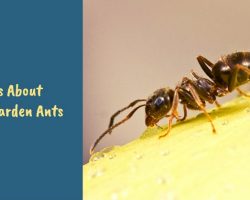
Facts About Black Garden Ants
Black garden ants are representatives of one of the species belonging to the ant family. They are found in Europe, in parts of Asia and in North America. Black garden ants form well-organized colonies in which each individual performs its function: some are responsible for reproduction, others – for order, and others are working. Latin name: Lasius niger Family: Formicidae
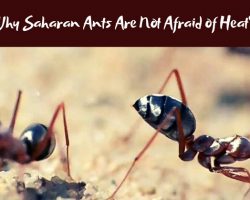
Why Saharan Ants Are Not Afraid of Heat?
The Saharan silver ant (Cataglyphis bombycina) is one of the most heat-resistant species of living creatures. When the midday sun of the Sahara desert forces the enemies of these ants to sit in the shade, the ants make short forays from their nests in search of food – those who are less resistant to heat and died from overheating become their prey.

Links Day 2015 Keynote Speakers
Parliamentary Links Day is an annual event organised in Parliament by the Society of Biology on behalf of the science community, which aims to strengthen dialogue between scientists and politicians. Watch the speeches by: Jo Johnson MP, Minister of State for Universities and Science; Nicola Blackwood MP, chair of the House of Commons Science and Technology Select Committee; and Sir Venki Ramakrishnan, President Elect of The Royal Society… You can read more about Parliamentary Links Day 2015 on our website, Storify, Facebook, or elsewhere on the blog.
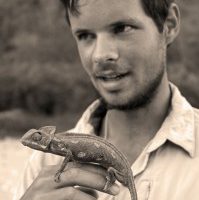
What role will science play in the new Parliament?
By James Borrell, NERC funded PhD student and science policy intern at the Society of Biology What role will science play in the new parliament? How will new research influence policy? Will science funding increase or continue to decline? The answers to these questions are elusive, but perhaps the clearest bellwether of the prevailing scientific climate is the annual Parliamentary Links Day. The largest science event in the parliamentary calendar, Links Day is organised by the Society of Biology on behalf of the science and engineering community. As a NERC funded PhD student on a three month science policy internship, Links Day was a tangible opportunity to see how science and government interact. I’m very aware than when scientists are based at universities and institutes across the UK it can be difficult to understand how their work relates to developments in Westminster. So as an aspiring…

Securing the future of our natural capital: a 25 year strategy
Written by Ben Connor, policy officer at the British Ecological Society. This piece was originally posted on the BES blog. A comprehensive 25-year strategy to protect and enhance England’s natural capital is required if the Government is to meet its commitment for this generation to be the first to leave the natural environment in a better state than it inherited. Business as usual is not an option, with long-term trends indicating that our natural capital is in decline, presenting a profound risk to our future wellbeing and prosperity. New legislation, backed by close collaboration between the public sector, business and civil society, will be required to ensure that this strategy is delivered. Those were the headline recommendations of the third and final report of the Natural Capital Committee, released yesterday and formally launched at the Royal Society last night. The report represents the culmination of three years’ work by the Committee –…
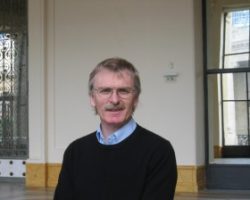
Gain-of-function experiments: Putting meaning back into words
Professor Simon Wain-Hobson, professor of virology at the Institut Pasteur, will be speaking at Policy Lates on Thursday 20 November: Dodging a Biological Bullet: What can we learn from the US and Europe about biosecurity? The US pause and de facto moratorium on gain-of-function research on the influenza, SARS and MERS viruses provides a welcome opportunity for the virologists. It should not be wasted. First, we must put meaning back into words. Gain-of-function (GOF) was coined to efface the negative connotations of ‘Dual Use Research of Concern’. GOF is not a run of the mill experiment. It means deliberately selecting for viral variants so that the resulting strain is more dangerous for humans. This can mean stabilizing the virus making it more infectious, increasing its pathogenicity, or changing the transmission route of the virus. For example, the bird flu virus, H7N1, has been engineered so that it is very probably transmissible between…
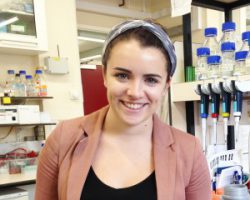
Can we outsmart malaria? A question of tactics
Dara Annett is a PhD student in the Deu group in the Department of Parasitology, currently at the NIMR until the move to the Crick Institute in 2016 Malaria is one of humankind’s oldest battles. Our understanding has increased rapidly in the last century but there are still around 200 million cases reported per year and more than 600,000 deaths [1]. When I was applying for PhDs as a Chemistry graduate I had no specialist biology background, but I knew that I wanted to put my skills to use in a field that had an impact on global health and disease. My work involves identifying new drug targets in the malaria parasite. Although this is very early in the process of drug discovery, I know that it is working towards translational research. This excites me and will keep me coming in every day for 4…

Dual-use for Dummies
Dr Supatra Marsh, BBSRC Policy Fellow at the Society of Biology, is organising Policy Lates: Dodging a biological bullet – what can we learn from the US and Europe about Biosecurity? During my BBSRC science policy fellowship at the Society of Biology I have been organising the next Policy Lates event focussing on dual-use research. Just in case there are any of you out there that are asking the question ‘what is dual-use research?’ I have tried to write a beginner’s guide to dual-use and biosecurity; dual-use for dummies if you will! According to the National Science Advisory Board for Biosecurity (NSABB) in the United States, dual-use or dual-use research of concern (DURC) is defined as “research that, based on current understanding, can be reasonably anticipated to provide knowledge, products, or technologies that could be directly misapplied by others to pose a threat to public health and safety, agricultural crops and other…
Malaria control drains financial and human resources
Professor Robert Sinden is head of malaria cell biology at The Jenner Institute, University of Oxford. He will be speaking at the Biology Week Debate: ‘Malaria eradication – Can we do it? Should we do it?’ at the Royal Institution on Thursday 16th October. Together with HIV and tuberculosis, malaria imposes one of the highest health burdens on mankind. We must keep eradication as the key driver of our research. There are an estimated 25 species of malaria parasites described in primates. Around five of these species can infect humans, and all of these species are transmitted by 30-40 mosquito species. The majority of human disease and deaths are caused by just two species P.falciparum and P.vivax. In the 19th century half the world’s population were at risk of malaria and 1:10 died of the infection. In the 20th century, technologies targeting the mosquito vectors, such as housing improvements, bed…
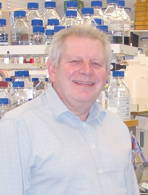
Eradicating malaria: the evolution problem
Dr Tony Holder is Head of the Division of Parasitology at the MRC-National Institute for Medical Research, and has worked on malaria for nearly 35 years. He will be speaking at the Biology Week Debate: ‘Malaria eradication – Can we do it? Should we do it?’ at the Royal Institution on Thursday 16th October. There are many ways to try and combat malaria, and passionate arguments still rage around the pros and cons of targeting the mosquitoes that spread the malaria parasite, providing widespread and rapid access to drugs to treat the disease, or developing vaccines. Better housing and environmental improvements would also contribute to improving the lot of millions living in some of the poorest parts of the world where malaria is endemic. Indeed many of the arguments around control, as well as elimination and eventual eradication of malaria have a large political and economic component and…
